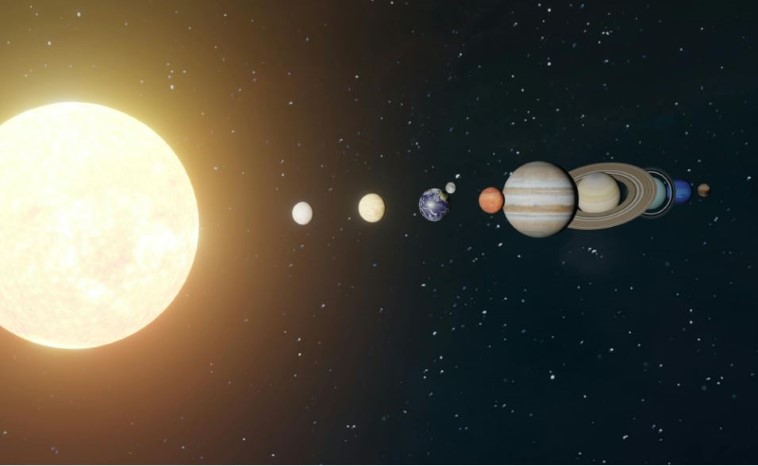Venus – the hottest planet of them all

The Sun warms everything around it and the closer you are to it, the warmer you feel. And, of course, vice versa. That’s why Jupiter is twice as cold as Mars. But is this universal or are there variations to this rule?
On Jupiter, depending on where it is measured, the temperature ranges from -110 to -145 degrees Celsius, and on Mars it is -60 degrees on average. Jupiter is about 780 million km away from the Sun, and Mars is about 220 million km away.
But there is an exception to this rule that the temperature decreases with distance, so the highest temperature on Mercury is about 430 degrees C, and on Venus, which is twice as far from the Sun as Mercury, that temperature rises to 460 degrees.
Why is it like that? Why is Venus hotter than Mercury?
Mercury orbits the Sun at a distance of 48 million kilometers, and Venus at a distance of 110 million kilometers.
So why is that so? Well, because of the atmosphere that surrounds Venus. Mercury does not have an atmosphere, but something like that, only to say that there is something above it, and these are particles separated by a few hundred meters, which is practically nothing, a vacuum.

This is precisely why there are drastic differences between day and night temperatures on Mercury (and other bodies without an atmosphere), so on the night side of that small planet the temperature drops to as low as -180 degrees Celsius.
Venus, on the other hand, has a very dense atmosphere that dissipates heat on its night side as well. That atmosphere is 100 times denser than ours on Earth. And that, of course, is not all there is to know about this.
Venus’s atmosphere consists largely of carbon dioxide, and carbon dioxide is a greenhouse gas! Such an atmosphere absorbs infrared radiation, that which comes from the Sun, but also that which radiates from the ground of the planet, and thus this atmosphere prevents the heat from being dissipated into space. This is precisely the main (though not the only) reason why Venus is so hot.
The atmosphere with greenhouse gases is also a problem of the global temperature increase on Earth, which is why countries are trying to reduce the emission of greenhouse gases in order to stop the tendency of the global temperature to rise.
But it would be wrong to completely denigrate carbon dioxide, because without it, our planet would freeze and over time it would be chained by ice. Therefore, it is carbon dioxide that makes our planet habitable.
By the way, it has already happened in the past that the Earth froze completely, but thanks to carbon dioxide, it got out of the trap of eternal ice. When the planet is covered with snow and ice, the whiteness of its surface reflects the Sun’s rays, and the planet does not heat up enough to melt the ice during the summer.
But then how did the Earth get out of the trap? It was saved by volcanoes spewing carbon dioxide into the atmosphere – which then retained heat as we have already described. The Earth has a certain self-regulation of the climate, but that is another story.

